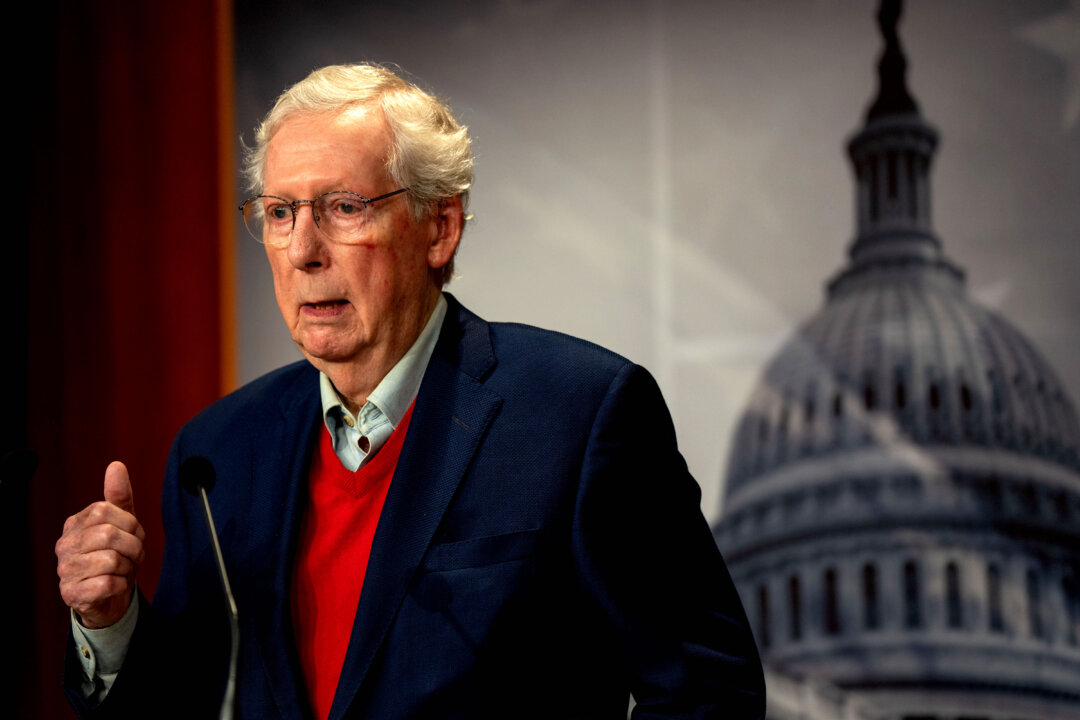
The Keir-miles are mounting fast. A leader whose previous experience of the world beyond Holborn and St Pancras and legal London was limited to human rights cases and holidays has embraced being a globe-trotting Prime Minister. He is on his way to the G20 in Brazil, seeking a personal introduction to China’s Xi Jinping.
Last week, his (large) delegation bustled past me at the COP29 climate summit in Azerbaijan, where he laid out a plan to cut UK carbon emissions – a rare concrete commitment at the gathering as many other governments went missing in action, worried about Donald Trump, Azerbaijan’s questionable hosting credentials, or both. Since taking office in July, Starmer has been to Washington and Berlin twice and Paris three times for summits and get-to-know-you chats. In between there have been appearances in Brussels, Rome and the UN General Assembly in New York, and more besides.
All this is a bullseye target for critics who say that he is fonder of globe-trotting than dealing with the grind of executing difficult reform plans and facing up to mounting tax rows at home. Parochialism and an inward-turning trend across democracies means that foreign trips are easily lampooned as a distraction from his day job. As a frequent media observer at the “global moments”, I beg to differ.
The idea that COP summits and G20s are a pleasure for prime ministers is a fiction – flying is not a ton of fun when you do a lot of it, and especially when the journalists travelling with you want to ask about the future of the Archbishop of Canterbury rather than your big announcement. This is rarely the glitzy world of Netflix’s The Diplomat – more like an elbow-jostle for prominence with other more experienced or ruthless leaders. Then there’s the delicate balance of talking with autocracies while avoiding the shame of bending the knee to dictatorships, over-hot rooms, long corridors, longer meetings and the befuddlement of switching time zones, all while staying across events back in Blighty.
Starmer is right, however, to follow the advice of his global-brand predecessor Tony Blair in ensuring that he gets comfortable on the global circuit. The “international stage” is so-called for good reason. Those who don’t come to feel comfortable on it and know how to operate in the wider global community of leadership end up diminished.
Also, much of what will determine the “growth agenda” for the UK relies on deals, understandings and trade-offs with the outside world. You cannot be “Global Britain” only from London SW1. UN climate summits invariably come with a hefty side portion of sneer.
But Starmer has made a mark among countries which do not want to throw out the baby with the bath water in the fight against dangerous temperature rises. He seeks to make the UK a “climate leader” in emissions cuts. At the same time, he is clearly seeking an accommodation with China, to avoid joining the new Trump administration’s enthusiasm for trade wars.
From supply chains to shakily financed universities, Starmer has evidently decided that a softer position towards Beijing benefits the UK. How that works out is very far from being in his control. The Chagos Islands deal – under which the UK will hand sovereignty to Mauritius in return for a leasing deal on the largest of the Chagos Islands, the defence hot-spot of Diego Garcia – is not landing well in Washington, and will attract greater opprobrium when Trump’s administration hits its stride.
The Government reasons that a long lease on a military base is a good insurance policy, but the wider strategy feels fuzzy. Starmer’s most pro-European wing believes in doubling down on relations with the EU . Read Next To understand Trump's approach to climate change, keep an eye on Elon Musk But that is also a risky prospect – European countries may deride Brexit, but many are also becoming more inwardly focused and are loath to give much in return for Labour’s show of openness.
Much of this is being discussed in the blowtorch heat of a Trump victory, with its tilt towards a speedy disengagement from the Ukraine war and an amplified Maga message that international alliances can be upended or disposed of if they do not fit a particular Trumpian concept of America’s interests. Starmer, leading an Anglosphere, centre-left, climate-aware government, is an easy target for a new breed of Trumpsters looking for targets and contrasts. But this context is precisely why Starmer wants to widen Britain’s alliances, still damaged by Brexit in Europe , and add a sense of reconnection to medium-scale players, from Turkey to India.
Having interviewed the Prime Minister a year ago as he got to grips with a foreign policy agenda which was new to him, it seemed he approached it as one might a tricky legal brief, reading cautiously from copious notes he had made himself. Nothing wrong with that: as a “details person” in his legal career, he knows that any “blind spots” are dangerous in a leader’s global dealings and are the bits that can go badly wrong. It was Starmer’s persistence with Germany that paved the way to a rapid signing of the recent Trinity House Agreement to extend Anglo-German defence collaboration, crucially in London (it’s a minor coup in this setting to persuade the other side to come to you).
The more decisive question is how astute Starmer’s choices turn out to be and that is a matter of calculation and luck. This week’s long-haul to a fractious G20 meeting of economic powers often at odds is symptomatic of these choices. Labour aims to signal that the UK is open to trade across the world, however intent Donald Trump may be on imposing tariffs – and that Britain, after the Brexit years on the naughty step of the global circuit, is “back”.
Back to where is a more mysterious matter altogether. But a prime minister’s job is to pursue our interests internationally as well as in the domestic sphere. So “Keir International” is a better starting point than heeding the small minds, and staying by the Number 10 fireside.
Anne McElvoy is host of the Power Play podcast from Politico.














